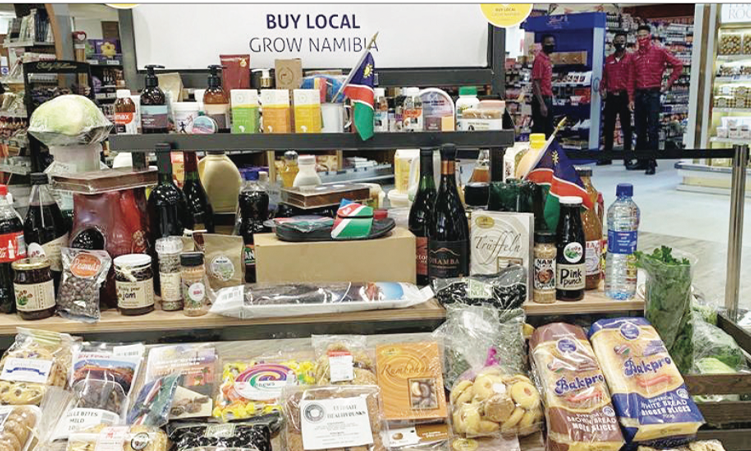The United Nations (UN) in Namibia says it is committed to supporting the ‘Buy Local, Grow Namibia’ initiative.
The United Nations Development Programme (UNDP) says the UN’s support mainly focuses on the creation of an ecosystem for entrepreneurs, artists, artisans, crafters and the informal sector.
The involvement of UN in the initiative is facilitated by the Accelerator Lab.
“We also collaborated with the Franco-Namibia Cultural Centre (FNCC), which hosted the first Buy Local, Grow Namibia Fair in December 2021,” the programme says.
It says supporting local entrepreneurs and artisans contributes directly to economic growth by fostering small and medium enterprises (SMEs) and the creative sector.
This, in turn, creates job opportunities and stimulates local economies.
The informal economy plays a crucial role in many regions, providing livelihoods for a significant portion of the population.
The UNDP says investing in the creative sector and local artisans helps preserve and promote cultural heritage.
By supporting the production and sale of locally crafted merchandise, the UNDP in Namibia aims to celebrate and sustain traditional skills and crafts, ensuring they are passed down through generations.
The UNDP in Namibia also believes targeting the informal economy is essential for poverty alleviation.
“Our initiatives also prioritise gender equality by ensuring that both men and women in local communities have equal access to opportunities and resources.
Inclusive economic development is key to creating a more just and equitable society,” the programme says.
“By promoting local craftsmanship, we encourage sustainable practices.
Locally produced goods often have a smaller environmental footprint compared to mass-produced imports,” the programme says.
When Namibians buy local products, this does not only boost economic growth, but also contributes to cultural vibrancy and social cohesion.
Supporting local entrepreneurs in the informal economy has ripple effects, positively impacting various aspects of a community’s well-being.
However, there are always challenges.
The UN in Namibia says although the Accelerator Lab has been in this space for the past three years, it has been found that many local entrepreneurs struggle with limited exposure and access to broader markets.
To address this challenge, the UN in Namibia provides both digital and physical platforms, training, and networking opportunities.
Entrepreneurs are also complaining about cumbersome bureaucratic procedures and difficulties in registering businesses.
The UN says it advocates streamlined processes and provides assistance to navigate these hurdles.
“We have also found that there is a lack of incentives for businesses to register.
The lab has been exploring the potential to work with Namra, the Namibia Trade Forum, the Ministry of Trade and Industrialisation, as well as the Namibia Informal Sector Organization (NISO) to highlight and amplify the benefits of formalisation, including access to financial support, legal protections and increased market opportunities.
“Relatedly, heavy and complicated tax regimes often burden small businesses,” the UN in Namibia says.
It is working with Namra on innovative financing, but also to simplify tax procedures, it says.
In an increasingly digital world, poor internet connectivity poses a significant challenge.
Hence, transitioning from a reliance on physical cash to digital transfers is crucial for efficiency and financial inclusion.
The UN in Namibia’s Accelerator Lab is also experimenting with Tambula, an online marketplace for Namibians by Namibians, to support programmes that encourage the adoption of digital payment methods.
The UN in Namibia says it has found that many local entrepreneurs face challenges related to the quality of their products and a lack of specialised training.
It has provided training programmes through Empretec, which is focused on improving product quality, enhancing business skills and fostering innovation to ensure sustainable growth.
“These challenges are complex, but UN Namibia’s holistic approach addresses them through collaboration with the public service, local communities, the private sector and other stakeholders.
“By tackling these obstacles, we aim to create an environment where local entrepreneurs and artisans can thrive, contribute to economic development and preserve cultural heritage,” the UN in Namibia says.
The ‘Buy Local, Grow Namibia’ initiative was launched in October 2000.
Stay informed with The Namibian – your source for credible journalism. Get in-depth reporting and opinions for
only N$85 a month. Invest in journalism, invest in democracy –
Subscribe Now!






